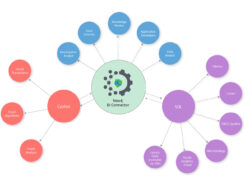Summary:
Are you considering a career change or wondering what path to take in life? Becoming a real estate agent might be the answer you’re looking for. In this comprehensive guide, we will explore the ins and outs of pursuing a career in real estate, addressing common questions like whether a college degree is required, the importance of obtaining a real estate license, building strong industry relationships, adopting a sales mindset, enjoying workplace flexibility, and the importance of continuous upskilling. By the end of this article, you’ll have a clearer understanding of whether a career in real estate is the right choice for you.
You Don’t Need a College Degree—But You Will Need (At Least One) Real Estate License:
One of the appealing aspects of becoming a real estate agent is that you don’t necessarily need a college degree to get started. While having a degree in business, finance, or a related field can be advantageous, it’s not a strict requirement for entering the real estate industry. Instead, what you do need is a real estate license.
In the world of career choices, real estate stands out as a unique and appealing option for many individuals. One of the key attractions of pursuing a career in real estate is that you don’t necessarily need a college degree to get started. While having a degree can undoubtedly provide valuable skills and knowledge, the real estate industry has its own set of requirements and qualifications, with a real estate license being the primary focus.
The Importance of a Real Estate License:
1. Legal Authorization: A real estate license is not just a piece of paper; it’s a legal authorization that allows you to engage in real estate transactions on behalf of clients. Without a license, you cannot legally represent buyers or sellers, which is a fundamental aspect of the real estate profession.
2. Credibility and Trust: Holding a real estate license lends credibility to your professional identity. Clients and peers are more likely to trust and work with licensed agents because they have met specific educational and ethical standards set by state authorities.
3. Access to MLS: Most real estate agents gain access to the Multiple Listing Service (MLS), a database of properties for sale, through their brokerage. MLS access is typically reserved for licensed agents, providing valuable information and tools for conducting transactions.
4. Networking Opportunities: Becoming licensed allows you to join local and national real estate associations and organizations, providing networking opportunities and access to resources that can enhance your career.
Meeting Licensing Requirements:
To obtain a real estate license, you will typically need to follow these steps:
1. Pre-Licensing Education: Enroll in a state-approved real estate pre-licensing course. The number of required education hours varies by state.
2. Pass the Licensing Exam: After completing the required coursework, you’ll need to pass the state licensing exam. This test assesses your knowledge of real estate laws, principles, and practices.
3. Background Check: Some states require background checks to ensure applicants have no disqualifying criminal history.
4. Additional State-Specific Requirements: Depending on your state, you may need to fulfill other requirements, such as completing a certain number of supervised transactions or continuing education courses.
Pro Tip: Obtaining a real estate license is crucial. It involves completing pre-licensing education, passing a state licensing exam, and meeting other specific requirements depending on your location. Be sure to research your state’s requirements thoroughly and invest time and effort into your real estate education.
You Need to Be Financially Prepared to Take the Plunge:
Becoming a real estate agent is an exciting prospect, but it’s essential to recognize that financial preparation is a key component of success in this career. Unlike many traditional professions that may demand a college degree, the real estate industry prioritizes practical qualifications like obtaining a real estate license over formal education.
Financial readiness is crucial for several reasons. Firstly, pursuing the path of a real estate agent requires an investment in education, exam fees, and licensing expenses, which can vary depending on your location. While it’s true that you don’t need a college degree, you’ll still need to budget for these initial costs.
Furthermore, a real estate career often involves a period of adjustment where income might not be consistent or substantial in the beginning. It’s imperative to have a financial cushion to cover your living expenses while you establish your clientele and start generating commissions.
Without the financial readiness to support yourself during this initial phase, the dream of becoming a real estate agent can quickly turn into a financial burden. Therefore, assessing your financial situation and creating a budget that accommodates the costs associated with becoming a real estate agent is a prudent step toward realizing your goals in this promising yet competitive field.
In conclusion, while the real estate industry doesn’t necessitate a college degree, it does require a solid financial foundation to cover educational and licensing expenses and provide financial stability during the early stages of your real estate career. By managing your finances wisely, you can pave the way for a successful and rewarding journey in the world of real estate, where opportunities abound for those willing to invest in their education and persevere in this dynamic profession.
Pro Tip: Create a budget that accounts for both your startup costs and your living expenses. Consider saving up a financial buffer before making the leap into the real estate industry to ensure a smoother transition.
You Need to Build Strong Relationships Within the Industry:
In the world of real estate, relationships are everything. Building a network of connections can greatly enhance your success as a real estate agent. But how do you go about it?
- First, Find the Right People to Network With:
Identify individuals who can mentor you, provide guidance, and offer valuable insights into the real estate market. Seek out experienced real estate agents, brokers, and industry professionals who are willing to share their knowledge and experiences.
- Use Your Time with Your Peers and Mentors:
Attend real estate seminars, conferences, and local industry events. These gatherings provide excellent opportunities to meet like-minded peers and experienced professionals who can help you grow your network. Remember to exchange contact information and stay in touch with your new connections.
Pro Tip: Networking is an ongoing process. Regularly engage with your network, share information, and provide assistance when possible. Building strong relationships takes time, but it can open doors to countless opportunities in the real estate industry.
You Need to Build a “Sales Mindset”:
Building a “sales mindset” is essential for success in the real estate industry. Unlike traditional 9-to-5 jobs, real estate agents often function as independent entrepreneurs, and their income directly correlates with their ability to sell properties effectively. Embracing a sales mindset means adopting a proactive, confident, and adaptable approach to client interactions and transactions.
Effective communication is at the core of this mindset. Real estate agents must excel at articulating property features, market trends, and negotiation terms to clients. They should listen attentively to client’s needs and concerns, demonstrating empathy and building trust.
Negotiation skills are paramount in real estate, as agents must navigate intricate deals and advocate for their client’s best interests. A strong sales mindset equips agents with the resilience to handle rejection and the tenacity to keep pursuing opportunities.
Adaptability is another crucial facet. The real estate market is dynamic, with constant shifts in demand, pricing, and regulations. A successful agent embraces change, stays informed about industry developments, and adjusts strategies as needed.
Furthermore, effective time management is vital. Agents must prioritize tasks, allocate time wisely, and remain organized to serve multiple clients simultaneously.
In summary, developing a sales mindset is foundational in the real estate profession. It empowers agents to navigate the complexities of the industry, build lasting client relationships, and ultimately succeed in a career that rewards those who can effectively market and sell properties.
Pro Tip: Invest in sales training and education to develop your skills. Additionally, consider seeking a mentor who can guide you in developing your sales acumen.
You Have Flexibility at Work:
Flexibility is a notable perk of working in the real estate industry. Unlike many traditional 9-to-5 jobs, real estate agents often have the freedom to set their schedules and work independently. This flexibility allows agents to balance their professional and personal lives more effectively, catering to their individual needs and preferences.
One of the primary advantages of work flexibility in real estate is the ability to accommodate client schedules. Property showings, meetings, and negotiations can take place during evenings or weekends to accommodate clients who may have busy daytime commitments. This adaptability enhances the level of service agents can provide and can lead to increased client satisfaction.
Moreover, the freedom to choose your working hours can be especially appealing to those who value work-life balance. Real estate agents can attend family events, pursue personal interests, and manage their time more autonomously. This level of control over one’s schedule can contribute to reduced stress and improved overall well-being.
However, it’s essential to note that this flexibility also requires a high degree of self-discipline. Real estate agents must effectively manage their time, stay organized, and prioritize tasks to ensure productivity and success in a competitive industry. While flexibility offers numerous benefits, it’s a perk that demands responsibility and a strong work ethic.
In conclusion, flexibility is a significant advantage of working in real estate. It empowers agents to tailor their work schedules to meet client needs while enjoying improved work-life balance. Yet, it’s crucial to strike a balance between flexibility and discipline to thrive in this dynamic and rewarding profession.
Pro Tip: Create a structured daily routine to ensure you stay organized and meet your goals. Set aside time for prospecting, client meetings, administrative tasks, and personal development.
Finally, You Have to Keep Upskilling:
The real estate industry is constantly evolving. To stay competitive and provide the best service to your clients, you must commit to lifelong learning. Continuing education courses, workshops, and industry certifications can help you stay up to date with the latest market trends, technologies, and legal regulations.
Pro Tip: Dedicate time each year to enhance your knowledge and skills. Consider pursuing advanced certifications such as Certified Residential Specialist (CRS) or Accredited Buyer’s Representative (ABR) to stand out in the field.
Conclusion:
Becoming a real estate agent can be a rewarding and lucrative career choice, but it requires careful consideration and preparation. While you don’t need a college degree, you do need a real estate license and the financial readiness to start. Building strong industry relationships, adopting a sales mindset, enjoying workplace flexibility, and continuous upskilling are all essential components of a successful career in real estate. If you’re willing to put in the effort, develop your skills, and build a strong network, a career as a real estate agent can offer you a fulfilling and prosperous future in the ever-changing world of real estate. Remember, your success in this field ultimately depends on your commitment and dedication to your clients and your ongoing professional development.
FAQ Questions:
- Is it good to start as a real estate agent?
Starting as a real estate agent can be a good career choice for those who are self-motivated, enjoy working with people, and are willing to invest in education and networking. It offers flexibility, potential for high income, and opportunities for growth. However, success requires hard work, financial preparedness, and a sales-oriented mindset.
- Which stream is best for real estate?
There is no specific academic stream that is best for real estate. While business, finance, or marketing-related fields can be advantageous, real estate professionals come from diverse educational backgrounds. What’s most important is obtaining a real estate license and gaining practical experience in the industry.
- What is the youngest age for real estate?
The minimum age to become a licensed real estate agent varies by state in the United States, but it’s typically around 18 years old. However, some states may require you to be 19 or 21 to obtain a real estate license. Specific age requirements can differ, so it’s essential to check your state’s regulations.
- What is the life of a real estate agent?
The life of a real estate agent is dynamic and can vary significantly based on individual preferences and market conditions. It typically involves flexibility in work hours, networking, continuous learning, and a focus on client service. Income can fluctuate, and success depends on dedication and market conditions.

















































































